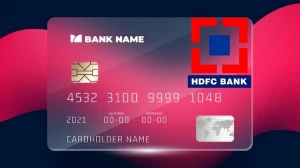
- Home »
- Credit Card »
- Can You Pay Rent With a Credit Card? How to Pay Rent With Credit Card?
Can You Pay Rent With a Credit Card? How to Pay Rent With Credit Card?
Yes, it is possible to pay rent with a credit card, but tenants should be aware of potential merchant processing fees and the impact on their credit score when considering this payment method.
Published Aug 03, 2023 | Updated Dec 13, 2023 | 📖 6 min read
Can You Pay Rent With a Credit Card?
Yes, it is possible to pay rent with a credit card, but there are several important considerations to keep in mind before deciding if it's the right choice for you. Paying rent with a credit card can offer convenience and potentially even some rewards, but it comes with certain drawbacks. Landlords or property management companies may or may not allow tenants to use credit cards for rent payments. It often depends on their policies and preferences.
For those who can pay rent with a credit card, there are merchant processing fees to consider. These fees are typically incurred by the vendor or their processing service provider and are paid to the credit card company and card network (e.g., Visa, Mastercard). However, some landlords may pass these fees on to tenants by adding a percentage to the monthly rent bill. So, while it's a viable option, it's not without potential additional costs.
How to Pay Rent With Your Credit Card?
Paying rent with a credit card offers convenience but comes with important considerations. Confirming landlord acceptance, understanding associated fees, and managing credit card balances are crucial steps. This guide provides a step-by-step process for those considering this payment option.
- Confirm if your landlord or property management company accepts credit card payments for rent.
- If credit card payments are accepted, make the payment online through the preferred platform or provide card details.
- Be aware of any processing fees associated with paying rent by credit card, as costs can vary.
- Provide accurate credit card details to your landlord or the payment platform.
- After processing, expect a confirmation of the rent payment transaction.
- Regularly check your credit card statement to verify correct processing of the rent payment.
- To avoid interest charges, ensure timely and full payment of the credit card balance related to the rent payment.
What are Rent Payment Charges on Credit Cards?
Paying rent with a credit card usually involves transaction fees, typically around 2% to 3% of the payment amount. However, there are some exceptions like the Bilt Mastercard, which allows rent payments without transaction fees.
It's important to be mindful of the impact on your credit utilization ratio, as high utilization can affect your credit score. Additionally, not paying off the credit card balance in full each month can result in interest charges on your rent payment.
Enter the world of MarketsHost, where financial clarity meets business excellence. Explore, envision, and rise.
How to Avoid Debt When You Pay Rent With a Credit Card?
When paying your rent with a credit card, it's crucial to have a strategy in place to prevent accumulating debt. One effective approach is to use a credit card with a feature like Amex's Pay It, Plan It®, which allows you to convert substantial expenses, such as rent payments, into fixed monthly payments without incurring compound interest charges. By utilizing this feature, you can manage your rent payments over several months, making it more manageable.
This strategy can be particularly advantageous when using a credit card with a 0% introductory APR, which lets you carry a temporary balance without accruing interest charges. However, it's important to note that carrying a revolving credit card balance over time can potentially lead to a cycle of credit card debt. Therefore, it's crucial to have a clear plan in mind to pay off your credit card balance, especially when using your credit card for significant payments like rent.
How to Minimize Fees When You Pay Rent With a Credit Card?
Minimizing fees when paying rent with a credit card is essential, as these fees can add up quickly. Landlords often charge extra fees for credit card payments to compensate for the credit card processing fees they incur. Here are a couple of strategies to reduce or eliminate these fees:
Use Credit Card Payment Features
Some credit cards offer features that can help you minimize fees when paying rent. For example, American Express Blue Cash Preferred® credit card offers the "Send & Split" feature, which allows you to split payments with other Venmo and PayPal users. This feature also enables you to send money through Venmo or PayPal without incurring their standard credit card fees. This can be an effective way to pay your landlord if they accept Venmo.
Utilize Fee-Free Options
The Bilt Mastercard® provides fee-free methods for paying your rent through the Bilt app. You can send a check directly to your landlord or use platforms like Venmo, PayPal, or an online portal, all without incurring the typical 2 to 3 percent processing fees charged by many rental portals. The Bilt card also offers rewards, such as 1X points on rental payments, making it a more attractive option if you have at least five posted transactions per billing cycle.
What Are the Pros and Cons of Paying Rent With a Credit Card?
Paying rent with a credit card has both advantages and disadvantages. On one hand, it can help build a positive credit history and offer rewards, while on the other hand, there might be fees and risks of impacting your credit score. Understanding these pros and cons is essential for making informed decisions about using a credit card for rent payments.
Pros of Paying Rent With a Credit Card
- Responsible use of a credit card can contribute to building a positive credit history and potentially boosting your credit score.
- Many credit cards offer digital features, like bill payment services, assisting in timely payments and financial organization.
- Some credit cards provide rewards such as cashback, points, or miles, offering benefits for regular expenses like rent payments.
- In times of financial strain, using a credit card to pay rent can provide temporary relief and help manage cash flow.
Cons of Paying Rent With a Credit Card
- Depending on your card, you may incur processing fees and interest charges, potentially outweighing any rewards gained.
- Using a credit card for rent creates an extra financial obligation, necessitating careful adherence to payment terms.
- Irresponsible credit card use can negatively impact your credit score; timely payments and low credit utilization are crucial for maintaining a positive credit profile.
Can You Pay Rent With a Credit Card - FAQs
1. Can I pay rent with a credit card?
Yes, it is possible to pay rent with a credit card, but not all landlords or property management groups accept this form of payment.
2. What fees are associated with paying rent using a credit card?
Fees can vary, but typically there are processing fees ranging from 1% to 5% of the rent amount, and interest charges if the credit card balance is not paid in full each month.
3. Can paying rent with a credit card affect my credit score?
Yes, it can impact your credit score by increasing your credit utilization ratio if you have a significant balance compared to your credit limit.
4. Are there any alternatives to paying rent with a credit card?
Yes, you can explore other payment options such as ACH payments or traditional checks, which may not incur fees and won't affect your credit utilization.
5. What should I consider before deciding to pay rent with a credit card?
Consider the fees, potential impact on your credit score, and your ability to manage credit card debt responsibly before opting for this payment method.




